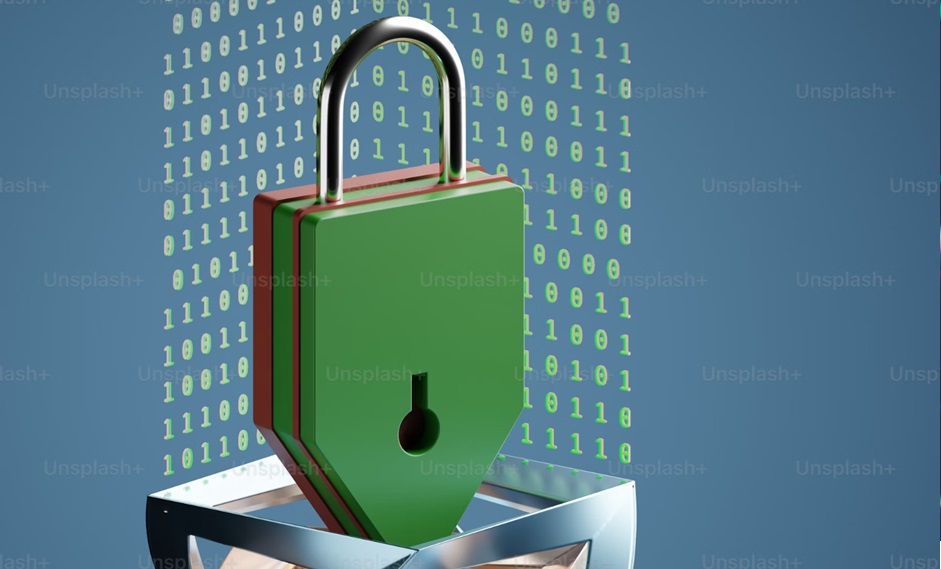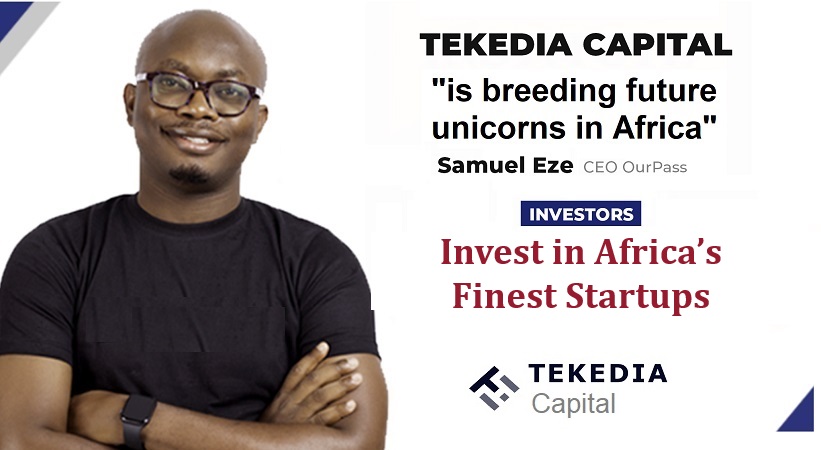News
How to Buy Bitcoin & Other Cryptocurrencies: a Step-by-Step Guide

Paid non-client promotion: Affiliate links for the products on this page are from partners that compensate us (see our advertiser disclosure with our list of partners for more details). However, our opinions are our own. See how we rate investing products to write unbiased product reviews.
- Cryptocurrencies are digital assets that can be transferred without third parties.
- There are generally three ways to buy crypto: crypto exchanges, brokerages, or payment services.
- Order types greatly influence how much you’ll pay for different cryptocurrencies.
Cryptocurrencies are digital assets that trade on a 24/7 global market. If you’re thinking about adding cryptocurrencies like bitcoin, ethereum, or dogecoin to your investment portfolio, you have several options for doing so.
“Cryptocurrency is a unit of measure. It is a digital token that can be transferred from one party to another, but not duplicated,” explains Charles Allen, chief executive officer of BTCS, Inc.
Understanding cryptocurrency basics
What is cryptocurrency?
Cryptocurrencies are digital currencies (digital representations of value) that are secured using cryptography. Interested parties can use them to purchase goods and services. Past that, they enable individuals to make transactions without the interference of third-party intermediaries.
How does cryptocurrency work?
Unlike physical fiat currencies (e.g., the U.S. dollar), cryptocurrencies make use of decentralized networks, and their transactions are generally recorded on the blockchain, which is an immutable, decentralized ledger.
The first known blockchain was rolled out for use with bitcoin, the first digital currency to scale. This blockchain was designed to be immutable (meaning transactions cannot be reversed or deleted) and decentralized (meaning its records are stored on many different computers) in order to safeguard against fraud and also boost transparency.
Every bitcoin transaction that has taken place in the more than 15 years since the digital currency network has existed has been logged on the network’s blockchain. This feature helps create greater transparency.
“If I own a bitcoin, I don’t really own anything physical,” Allen says. “I just own a key that allows me to move a record or a unit of measure from one person to another, without a trusted third party.” And that’s really all the cryptocurrency is, he explains.
So if I own two bitcoins, he adds, I can move it from myself to someone else without a trusted third party in the middle. “And that transaction would be verified by this decentralized network of computers from nodes and miners.”
Why invest in cryptocurrency?
Investing in cryptocurrencies can potentially deliver substantial returns. The price of bitcoin, for example, has gone from pennies during the first few years of the digital currency’s existence to more than $60,000 per unit at the time of this writing, according to CoinMarketCap figures.
Another benefit of investing in digital currency is that it can be used to diversify one’s portfolio. The idea behind diversification is including multiple assets (potentially from various asset types) so that if one component of a portfolio falls in value, the other components rise in order to maintain the overall value of the portfolio.
While investing in cryptocurrency certainly has its benefits, interested parties should keep in mind that these digital assets can experience sharp volatility. Stocks can certainly experience price fluctuations, but the volatility experienced by digital currencies is more intense.
As a result, individuals who put their money into digital currency face significant downside risk, referring to the risk that the value of their principal could fall in value.
Past that, digital currencies are a very new asset class, at least compared to other more established asset classes like stocks and real estate. The first units of bitcoin came into existence in 2009, which would mean that this digital asset has been around for 15 years at the time of this writing.
Different ways to buy crypto
Cryptocurrency exchanges
A crypto exchange is a platform dedicated to facilitating the trading of cryptocurrency. Each exchange has its own rules when it comes to the buying, selling, and trading of cryptocurrency.
The best exchange for you depends on your needs, but beginners should look for exchanges that offer simple web and mobile interfaces, educational resources, and readily available customer support.
It is worth keeping in mind that while there is a large number of such marketplaces, there is a short list of organizations you should consider if you are seeking to use one of the best crypto exchanges out there.
Depending on the crypto exchange, you can trade one cryptocurrency for another, or exchange fiat money (like the U.S. dollar) for cryptocurrency, or vice versa. Prices are based on daily market rates.
Quick tip: With crypto also comes stablecoins and non-fungible tokens (NFTs). Stablecoins are backed by fiat currencies like the US Dollar to stabilize their value (if it’s backed by dollars, you can usually redeem one stablecoin for $1). NFTs, however, are unique, art-or-collectible-associated tokens that can’t be exchanged for other tokens.
It should be noted that not every exchange offers every cryptocurrency. But here are several exchanges and brokerages that do:
There are both centralized and decentralized exchanges. The most prominent exchanges, for example Coinbase and Kraken, are centralized, whereas decentralized exchanges are peer-to-peer (P2P) marketplaces where transactions take place directly between users.
Decentralized exchanges rely on smart contracts, which ensure that transactions take place as long as specific requirements are fulfilled.
While decentralized exchanges have seen increasing usage over time, centralized exchanges still see far more activity.
Traditional brokers
Interested parties can also purchase digital currencies through traditional brokers. Traditional online brokerages that offer cryptocurrencies are few, but more options are becoming available for crypto-oriented traders.
Online brokerages usually don’t offer as many cryptocurrencies as crypto exchanges (nor do they provide interest-earning account perks like staking).
One example of a broker that offers these digital assets is eToro USA, which offers trading in more than 20 cryptocurrencies.
Another example is Robinhood, which currently offers no-commission cryptocurrency trades. Users can buy and sell 15 different digital currencies through this platform.
Interactive Brokers offers digital currency trading, although it only allows investors to trade four cryptocurrencies, specifically bitcoin, ethereum, litecoin and bitcoin cash. This platform offers low commissions for such transactions, which can be as little as 0.12% to 0.18% of the value of the asset traded.
You should choose a broker if you’re looking to trade a variety of asset types under the same roof. TradeStation offers cryptocurrencies in addition to its selection of stocks, ETFs, options, bonds, and mutual funds.
Payment apps
Several payment apps give their users the ability to purchase cryptocurrencies. These software programs can offer easy access to digital assets.
In recent years, payment services like PayPal, Cash App, and Venmo, all expanded their accepted payment options, allowing users to buy, sell, or hold cryptocurrencies like bitcoin. Every one of these services has an app that users can access to make transactions.
Bitcoin ATMs
Bitcoin ATMs provide an easy way for interested parties to buy and sell the digital currency. As of January 1, 2024, there were more than 30,000 of these machines worldwide, according to Statista figures.
These machines offer users a straightforward way to purchase bitcoin using more traditional payment methods like cash and bank cards. These machines frequently leverage two-factor authentication, which requires multiple steps to verify a user, to help ensure the security of transactions.
Users should keep in mind that the fees associated with bitcoin ATMs can be high, according to figures provided by the Federal Reserve Bank of Kansas City, with interested parties often paying total fees of 20%.
Peer-to-peer (P2P) marketplaces
As stated earlier, decentralized exchanges provide crypto investors with P2P marketplaces where they can make transactions involving digital currencies.
These platforms depend on smart contracts to make sure that transactions take place.
Investors might take an interest in decentralized exchanges because transaction participants are not required to disclose their private keys like they would when using a centralized exchange.
Further, decentralized exchanges can charge low fees.
Decentralized exchanges also don’t hold investor funds, making them less appealing to hackers.
Choosing the right platform
Fees and commissions
Keep in mind that the total fees and commissions associated with trading platforms can vary quite a bit. Many exchanges charge not only trading fees, but also fees for deposits and withdrawals.
Fortunately, there are many different exchanges, platforms and apps you can use to purchase cryptocurrency. This competition may place downward pressure on total fees.
Security
When evaluating different platforms, the measures they use to ensure the security of their users is a major consideration. Two-factor authentication is common. Some exchanges put their cryptocurrency into cold storage, meaning that it is held offline, helping eliminate much of the risk that digital currencies will be compromised as a result of a hack.
In addition, some exchanges pay for insurance to help safeguard their users. Coinbase, for example, has crime insurance. “Coinbase carries crime insurance that protects a portion of digital currencies held across our storage systems against losses from theft, including cybersecurity breaches,” the Coinbase website states.
“However, our policy does not cover any losses resulting from unauthorized access to your personal Coinbase or Coinbase Pro account(s) due to a breach or loss of your credentials,” it adds.
Investors should keep in mind that cryptocurrency exchanges are not insured by the Federal Deposit Insurance Corporation, which provides insurance for banks.
Available cryptocurrencies
Bitcoin, the world’s most well-known cryptocurrency, can be purchased through many different mediums. Many exchanges offer far more than bitcoin, with some of these marketplaces offering trading of hundreds of cryptocurrencies.
The easiest way to determine which cryptocurrencies a platform, exchange or app offers is to simply peruse its website.
Reputation and user experience
As always, investors should perform thorough due diligence before using any platform, exploring its reputation and reviews left by users. Fortunately, there is a wealth of information on different exchanges that interested parties can access online.
Coinbase, in particular, has a reputation of being a safe exchange, although this organization is not without security breaches. In 2021, this platform suffered a hack that resulted in at least 6,000 users losing funds.
Setting up your wallet
Types of wallets
Cryptocurrency users frequently use wallets to hold the private keys they need to access their digital assets. These wallets can come in many forms, ranging from software wallets to hardware devices specifically designed to retain this information.
Technically, a user can write their private keys on a piece of paper, or alternatively, they can type them up using a word processor and print them out. While this may seem basic, it at least eliminates the risk of someone accessing one’s private keys through the internet.
Hardware wallets, for example thumb drives, are also secure, as they only connect to computers (like desktop and laptop devices) when necessary.
There are several variables to consider for investors who are trying to determine how to choose a crypto wallet.
When evaluating different crypto wallets, keep in mind that the amount of cryptocurrency you have plays a key role. If you only have a small amount invested, paying for expensive hardware doesn’t make sense. However, if you have a significant amount of money in cryptocurrency, paying for more elaborate security measures may seem perfectly reasonable.
Quick tip: If your exchange doesn’t offer a wallet, you may need to set up one with a personal wallet service. There are several different types of providers that may charge fees depending on whether it’s a hot or cold wallet. For example, cold wallets always generally charge fees, while hot wallets generally don’t.
Importance of security
Investors who want to keep their cryptocurrency secure can benefit from using strong passwords. For example, a user might want to craft a password that has many different characters, including letters, numbers and symbols.
Two-factor authentication can go a long way toward safeguarding one’s digital currency assets. While it may seem inconvenient by taking more time, using multiple steps to verify your identity may be well worth it in the grand scheme of things.
Transferring your crypto
Another strategy that many investors use to safeguard their cryptocurrency is buying it on exchanges and then transferring it to one or more wallets. Exchanges can hold very substantial amounts of cryptocurrency, making them compelling targets for hackers.
By moving their digital currency from exchanges to digital wallets, investors can transfer these assets to a far less visible place. Further, by sending cryptocurrencies to a hardware wallet, an investor can take their assets offline and make them far more secure.
Making your first purchase
Step-by-step instructions
Start by setting up an account through a platform that gives you the ability to purchase cryptocurrencies, for example the well-known exchange Coinbase.
To initiate this process, you will need to be at least 18 years of age and have access to a valid government ID you can use to confirm your identity, a computer or smartphone you can use to access Coinbase, and updated software. More specifically, using this exchange to make transactions will require you to have the latest version of the Coinbase app or the largest version of your browser (Coinbase recommends that interested parties use Google Chrome).
Once you have put these resources together, you can set up an account. Coinbase suggests that you do this either through the app (if using a smartphone) or through a browser (if you are using a computer). Coinbase recommends that potential users refrain from setting up accounts through the browser on their phone.
Setting up an account requires you to enter some basic information (legal name, the state where you reside, email address and a password) and then indicate that you agree to both the company’s User Agreement and Privacy Policy. Once you have reviewed these, you click on “SIGN UP” if using a mobile device or “Create account” if using a computer.
After this, Coinbase may send you a message designed to verify your email address. If you receive this, it will come from no-reply@coinbase.com, and all you have to do is click on “Verify Email Address,” which will in turn bring you to the Coinbase website where you can log in using your email address and password.
The next step involves verifying a phone number you wish to associate with your account, which requires signing in to your Coinbase account and then receiving a code sent to your phone via SMS, which you will in turn use to confirm your number with the exchange.
After that, you enter personal information as displayed on your government ID. Keep in mind that all the information needs to match up with the form of identification, as you will be required to submit it to Coinbase as part of the verification process.
You will need to provide some more information left off an ID, including your social security number and occupation, and then you will need to answer some basic questions like “What do you use Coinbase for?” and “What is your source of funds?”
Once you have completed the aforementioned step, you will have finished the application process.
Assuming Coinbase approves your account, you will need to verify your identity by submitting documentation and then link a payment method you will use to fund your account.
Next, you will need to fund your account, which you can do using many different methods. The various means you can use to fund your account will vary based on your jurisdiction, but in the U.S., the methods include your bank account, a debit card, Google Pay and PayPal.
Once you have funded your account, you can purchase a cryptocurrency by signing in to Coinbase.com, going to Buy/Sell, selecting a digital currency from the Buy tab, specifying the amount of the cryptocurrency you want to purchase, singling out a payment method, selecting Preview Buy so you can verify the details of your transaction, and, assuming the details reflect the exact purchase you want to make, clicking “Buy Now.”
FAQs
Yes, it is safe to buy cryptocurrency, but investors should evaluate any platform where they are considering making a purchase and follow best practices to ensure the security of their transactions.
Yes, most cryptocurrencies are divisible, meaning you can purchase just a fraction if you want.
Yes, there are taxes associated with cryptocurrencies. You can benefit from speaking with an accountant or tax professional to make sure you have all the details needed.
Yes, some platforms will allow you to purchase cryptocurrencies using a credit card, but the associated fees may be higher than if you used other payment methods.
Be sure to conduct thorough due diligence and understand the risks associated with investing in digital currencies. You might also benefit from using a paper account so you can get used to investing in these cryptocurrencies without putting any of your money at risk. Past that, it might be smart to start out small when you are first getting your feet wet. And any portfolio can benefit from diversification, which would involve incorporating many different assets.

Rickie Houston
Senior Wealth-Building Reporter
Rickie Houston was a senior wealth-building reporter for Business Insider, tasked with covering brokerage products, investment apps, online advisor services, cryptocurrency exchanges, and other wealth-building financial products.
Before Insider, Rickie worked as a personal finance writer at SmartAsset, focusing on retirement, investing, taxes, and banking topics. He’s contributed to stories published in the Boston Globe, and his work has also been featured in Yahoo News.
He graduated from Boston University, where he contributed as a staff writer and sports editor for Boston University News Service.
Read more
Read less
Top Offers From Our Partners


Earn up to 4.60% APY on savings balances and up to a $300 bonus with qualifying direct deposit. FDIC Insured.
News
US Cryptocurrency Rules Delayed by ‘Never-Ending’ Lawsuits

Ripple CEO says cryptocurrency industry still seeking regulatory clarity from US
Speaking to Bloomberg News on Wednesday (July 17), Author: Brad Garlinghouse he said America is behind behind other countries which have already adopted cryptocurrency regulations.
“What we’re seeing, where it’s the UK, Japan, Singapore… even the European Union, more than two dozen countries have come together to provide a framework for cryptocurrency regulation,” Garlinghouse said.
“It’s frustrating that we as a country can’t get that regulatory framework in place. And instead, we have this never-ending lawsuit coming from the SEC that doesn’t really address the problem.”
Ripple has been the target of some of these legal disputes. Securities and Exchange Commission (SEC) sued the company in 2020, accusing it of conducting a $1.3 billion operation offering of unregistered securities tied to its XRP token.
However, last year a judge ruled that only Ripple’s institutional sales of XRP, not retail sales, violated the law, a decision widely seen as a victory for the cryptocurrency industry.
As PYMNTS noted at the time, that ruling has “far-reaching repercussions impact across the digital asset ecosystem, which has long maintained that its tokens do not represent securities contracts.”
However, Garlinghouse told Bloomberg on Wednesday that the company cannot wage multimillion-dollar legal battles over each token.
He spoke to the news agency from the Republican National Convention in Milwaukee, where the party is backing the candidacies of former President Donald Trump and Ohio Sen. J.D. Vance, both of whom are considered pro-cryptocurrency.
But Garlinghouse argued that cryptocurrencies “should not be a partisan issue,” and noted that he had recently attended a conference in Washington that included Democrats, including White House officials.
“I think they were there, listening to the industry… it was refreshing to start having that conversation,” she said.
President Joe Biden earlier this year he vetoed a measure which would have ended the SEC’s special rules for crypto-asset custodians. This legislation was supported by both the digital asset industry and the banking industry.
Ripple early this year donated $25 million to the cryptocurrency industry’s super PAC Fair Smoothiewith Garlinghouse stating at the time that such donations would continue every year, as long as the industry had its detractors.
Second Open SecretsWhich monitor spending For campaigns, the PAC has spent $13.4 million this year, much of it to help defeat Rep. Katie Porter’s (D-Calif.) U.S. Senate campaign.
News
The Future of Cybersecurity in the Cryptocurrency Industry

The cryptocurrency space has had a tumultuous journey, with its fair share of ups and downs. As we look to the future, one area that remains a constant focus is cybersecurity. The digital nature of cryptocurrencies makes them inherently vulnerable to cyber threats, and as the industry evolves, so does the landscape of potential risks.
In 2022, the cryptocurrency market faced significant challenges, with over $2 trillion in market value lost. This event served as a wake-up call for the industry, highlighting the need for robust cybersecurity measures. The future of cryptocurrency security is expected to see a shift towards more regulated and established institutions taking the reins of crypto technology and blockchain infrastructure.
The decentralized nature of cryptocurrencies offers numerous benefits, such as transparency and financial inclusion. However, it also introduces unique security challenges. The risk landscape is filled with threats such as hacking, phishing, ransomware attacks, malware, and social engineering. These threats not only lead to financial losses, but also damage the reputation and trust within the cryptocurrency ecosystem.
Mini-MBA Tekedia edition 15 ((September 9 – December 7, 2024) started recordings; Register today for discounts reserved for early bird customers.
Tekedia AI in Business Masterclass Opens registrations Here.
Join the Tekedia Capital Syndicate and IInvest in Africa’s best startups Here.
The decentralized nature of cryptocurrencies offers many benefits, but it also presents unique security challenges. Cyber risks such as hacking, phishing, and ransomware pose threats to the integrity of digital assets. The infrastructure that supports cryptocurrencies is not immune to vulnerabilities, including smart contract flaws and exchange hacks.
To address these vulnerabilities, the infrastructure that supports cryptocurrencies must be strengthened. Smart contract vulnerabilities, exchange hacks, wallet breaches, and flaws in the underlying blockchain technology are significant concerns that must be addressed to ensure the security and integrity of digital assets.
As cybercriminal tactics and techniques become more sophisticated, the cryptocurrency industry must stay ahead of the curve. The future will likely see more targeted attacks, exploiting weaknesses in infrastructure, networks, and human factors. This requires a proactive and multifaceted approach to cybersecurity.
To mitigate these risks, several measures must be adopted:
Strengthening security measures: Developers, exchanges, and wallet providers must improve security protocols, use strong encryption, implement multi-factor authentication, and conduct regular security audits.
Education and awareness: Users should be educated on best practices for protecting their digital assets, including using strong passwords, recognizing phishing attempts, and using hardware wallets for secure storage.
Looking ahead, the cryptocurrency industry is expected to see an increased focus on robust security measures. Blockchain projects and exchanges are likely to invest in advanced encryption techniques and decentralized storage solutions to protect user assets. The future impact of cyber risk on cryptocurrencies will depend on the collective efforts of stakeholders to address vulnerabilities and strengthen security measures.
Collective efforts by stakeholders in the cryptocurrency space are crucial to address vulnerabilities and strengthen security measures. While challenges persist, advances in cybersecurity technologies and practices offer hope for a more secure and resilient cryptocurrency ecosystem.
The future of cybersecurity in the cryptocurrency industry depends on finding a balance between innovation and regulation. It requires a collaborative effort from all parties involved, from developers to end users, to create a secure environment that fosters trust and growth in the industry. As we move forward, it is critical that lessons learned from past events guide the development of stronger security measures, ensuring the longevity and stability of cryptocurrencies as a vital part of the modern economic toolkit.
Like this:
Like Loading…
News
Bullish XRP and RLBK price predictions rise, outpacing the broader cryptocurrency market, prompting Shiba Inu holders to switch!

Bitcoin’s one-week surge from $60,000 has pushed other cryptocurrencies into an uptrend. However, for many altcoins, this trend has been temporary. Altcoins such as XRP and Shiba Inu (SHIB) have experienced price drops. However, Rollblock, a new altcoin on the Ethereum blockchain, has thrived during this period, attracting thousands of investors looking for long-term growth.
XRP’s Nearly 30% Growth Over Last Week Drops as Selling Pressure Increases
XRP is seeing further price decline as Ripple investors withdraw their profits from the token. The surge in XRP’s price to $0.64 in the past week has provided investors with a perfect opportunity to increase their returns in the short term. With the ongoing sell-off in XRP, XRP has jumped over 8% in the past day and is now trading at $0.59. However, analysts tracking XRP indicators predict that XRP could still extend its gains by over 30% in the coming weeks.
Shiba Inu (SHIB) marks its third consecutive day of losses
Shiba Inu (SHIB) is in a period of adjustment after a week of strong gains. In the last 24 hours, SHIB has seen a jump of over 7%, reflecting a natural market fluctuation. Analysts are observing a death cross on the Shiba Inu chart, which historically signals the potential for future opportunities as the market stabilizes. As investors explore new possibilities, some are diversifying into promising altcoins like Rollblock (RBLK) to strategically rebalance their portfolios and capitalize on the emerging trend.
Rollblock (RBLK) Up Another 7% as New Investors Join Pre-Sale
Rollblock (RBLK) has taken the cryptocurrency market by storm, having attracted investors from more popular altcoins like Shiba Inu (SHIB) and XRP. Rollblock’s growth is attributed to its utility in the $450 billion global gaming industry.
Rollblock aims to use blockchain technology to bridge the gap between centralized and decentralized gambling. With blockchain technology, Rollblock secures every transaction in its online casino, providing transparency and convenience to millions of players who are uncomfortable placing bets on other iGaming platforms.
This innovative use of blockchain technology in the industry has grown Rollblock to over 4,000 new users in less than two months. With plans to add sports betting, this number is expected to grow exponentially in Q3.
Rollblock uses a revenue sharing model that splits up to 30% of its casino’s weekly profits with token holders. This happens after Rollblock buys back $RBLK from the open market and uses half of it for rewards. The other half is burned to increase the price of $RBLK.
Rollblock price has seen four increases in the past month with $RBLK tokens now selling for $0.017. Analysts predict that at the current growth rate, Rollblock could increase by over 800% before the presale ends. For investors looking for a long-term token with growth potential, phase four is the best time to buy Rollblock before its price skyrockets!
Discover the exciting Rollblock (RBLK) pre-sale opportunities now!
Website:https://Rollblockpresale.io/
Social: https://linktr.ee/Rollblockcasino
No spam, no lies, just insights. You can unsubscribe at any time.
News
Texas Crypto Miners Turn to AI as Crypto Declines

As cryptocurrency mining becomes less profitable, Texas cryptocurrency mining companies are switching to supporting artificial intelligence companies.
Bitcoin miners, with their sprawling data centers and access to significant energy resources, are ideally suited for computationally intensive AI operations, and as cryptocurrency mining becomes less profitable, companies see this shift as a logical answer to their problems.
On Thursday, Houston-based Lancium and Denver-based Crusoe Energy Systems announced a multibillion-dollar deal to build a 200-megawatt data center near the West Texas city of Abilene to support advanced artificial intelligence applications such as medical research and aircraft design, CNBC reported. The plant represents the first phase of a larger 1.2 gigawatt project.
Lancium and Crusoe’s move into AI mirrors a broader trend among bitcoin miners. The combined market capitalization of the top U.S.-listed bitcoin miners hit a record $22.8 billion in June. Companies like Bit Digital and Hut 8 are diversifying into AI, with Bit Digital securing a $92 million annual revenue deal to supply Nvidia GPUs and Hut 8 raising $150 million to expand its AI data center.
But the growing popularity of these operations also presents challenges, particularly for the Texas power grid. Last month, the Electric Reliability Council of Texas announced that the state is expected to nearly double its energy production by 2030 to meet the high energy demands of data centers and cryptocurrency operations.
Lieutenant Governor Dan Patrick expressed concern about the projections.
“Cryptocurrency miners and data centers will account for more than 50% of the additional growth. We need to take a close look at these two sectors,” He wrote on Twitter/X. “They produce very few jobs compared to the incredible demands they place on our network. Cryptocurrency miners could actually make more money selling electricity to the network than they do from their cryptocurrency mining operations.”
Analysts predict significant growth in data center power capacity, which is expected to account for up to 9% of U.S. electricity consumption by 2030.
The operations also pose challenges for nearby cities. Earlier this month, TIME reported that a crypto-mining facility was seriously compromising the health of residents in the city of Granbury. TIME reported more than 40 people with serious health problems, including cardiovascular disease, high blood pressure and hearing loss. At least 10 of the residents needed to go to the emergency room or an urgent care facility.
The disturbances were caused by the extreme noise generated by the crypto-mining facility’s fans, which are used to keep the machines cool. While the proposed data center in Abilene would use liquid cooling systems, it’s still unclear whether the facility’s operations would pose a health risk to local residents.
-

 Nfts1 year ago
Nfts1 year agoShardLab Launches ZK-Based Tool for Digital Identity and NFT Vouchers
-

 News1 year ago
News1 year agoWallet recovery firms are abuzz as stranded cryptocurrency investors panic in the bitcoin boom
-

 Bitcoin1 year ago
Bitcoin1 year agoBitcoin, Ethereum, Solana and Cryptocurrency Markets Look Ready to ‘Send’ as Stars Align, According to Investor Chris Burniske
-

 Altcoins1 year ago
Altcoins1 year agoThree Altcoins Poised for Significant Growth in 2024: ETFS, OP, BLAST
-

 Altcoins1 year ago
Altcoins1 year agoAccumulate these altcoins now for maximum gains
-

 Nfts1 year ago
Nfts1 year agoOG Crypto Artist Trevor Jones Unveils Groundbreaking Collection of Ordinals | NFT CULTURE | NFT News | Web3 Culture
-

 Bitcoin1 year ago
Bitcoin1 year agoBillionaires are selling Nvidia stock and buying an index fund that could rise as much as 5,655%, according to some Wall Street analysts
-

 Videos9 months ago
Videos9 months agoKamala just won the boner! [Bad For Crypto]
-

 Videos1 year ago
Videos1 year agoLIVE FOMC 🚨 Could be CATASTROPHIC for Altcoins!
-

 News1 year ago
News1 year agoA Guide for Newcomers & Beginners – Forbes Advisor
-

 Videos1 year ago
Videos1 year agoAttention: a historically significant BITCOIN signal has just appeared!
-

 Videos1 year ago
Videos1 year agoSTOCK MARKET FUD! ⚠️ [Why This Is GREAT For Bitcoin Traders!]







